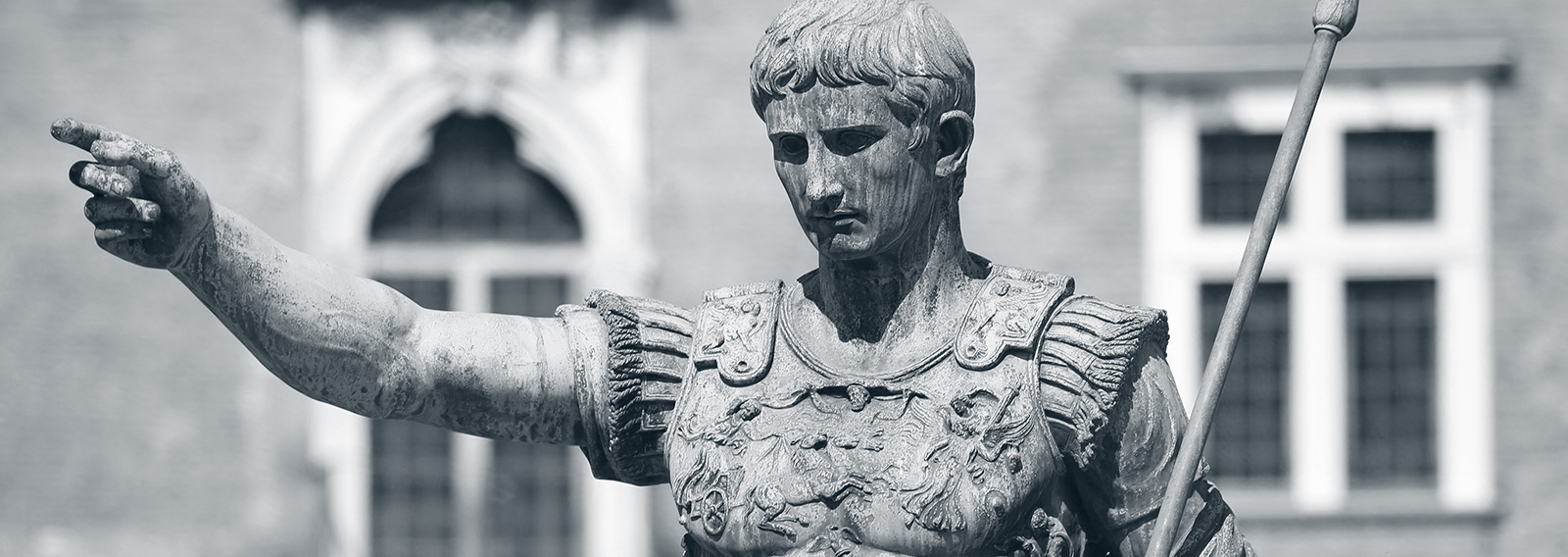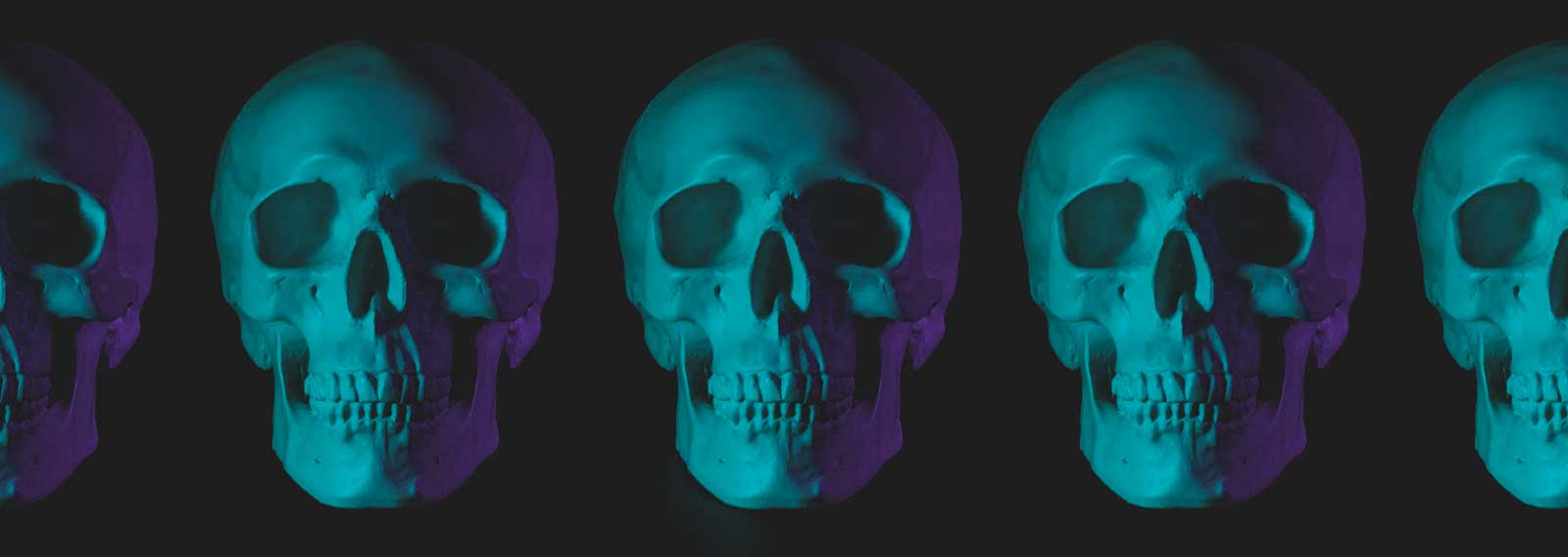There is only one true God of the universe. There is only one true sovereign. But when mere men reject the living God, they will always seek to find another god to put in his place. Usually, it is self. And often it is the state. Today we see the rise of Big Government and statism all over the West, and the very things warned about in novels like 1984 are quickly coming to pass.
This is a perennial problem. Consider two millennia ago when the early church was beginning to grow. It was considered to be a major threat by the Roman authorities – not so much for religious reasons, but because of political reasons. The government back then was quite happy to have all sorts of religions, as long as they allowed the state to declare itself to be Lord.
The Pantheon featured plenty of gods, and they could happily coexist, as long as Caesar got his due worship. This was something the Christians could not do of course. Only Jesus is Lord, and he alone is to be worshipped. So the believers back then were on a direct collision course with the state.
And it has always been that way. The state always seeks to take ever more power and control, displacing all rivals for supreme authority and full submission. The West today is in the very same boat. And that is why Christianity always poses a direct threat to Big Brother statists.
Let me draw upon some commentary here from several important books that were penned last century. Nearly 40 years ago Herbert Schlossberg wrote a very significant volume called Idols for Destruction (Thomas Nelson, 1983). One of the idols he wrote about was political power.
He has much of value to say in his chapter on this issue, but let me quote from just one section of it: “Our Father, the State”. He quotes the words of Jesus as found in Matthew 23:9: “Call no man your father on earth, for you have one Father, who is in heaven”. He then says this:
The paternal state not only feeds its children, but nurtures, educates, comforts, and disciplines them, providing all they need for their security.
This appears to be a mildly insulting way to treat adults, but it is really a great crime because it transforms the state from being a gift of God, given to protect us against violence, into an idol. It supplies us with all blessings, and we look to it for all our needs.
Once we sink to that level, as Lewis says, there is no point in telling state officials to mind their own business. “Our whole lives are their business.” The paternalism of the state is that of the bad parent who wants his children dependent on him forever. That is an evil impulse.
The good parent prepares his children for independence, trains them to make responsible decisions, knows that he harms them by not helping them to break loose. The paternal state thrives on dependency.
When the dependents free themselves, it loses power. It is, therefore, parasitic on the very persons whom it turns into parasites. Thus, the state and its dependents march symbiotically to destruction.
Since he appealed to C. S. Lewis, let me speak further to what Lewis said on this matter. His piece was a 1958 essay called: “Is Progress Possible? Willing Slaves of the Welfare State.”
He writes: “The modern State exists not to protect our rights but to do us good or make us good—anyway, to do something to us or to make us something. Hence the new name ‘leaders’ for those who were once ‘rulers.’ We are less their subjects than their wards, pupils, or domestic animals. There is nothing left of which we can say to them, ‘Mind your own business.’ Our whole lives are their business.”
He goes on to discuss how science and technocracy are leading the way in bringing about the planned, ‘perfect’ society. Says Lewis:
I do not like the pretensions of Government—the grounds on which it demands my obedience—to be pitched too high. . . . On just the same grounds I dread government in the name of science. That is how tyrannies come in. In every age the men who want us under their thumb, if they have any sense, will put forward the particular pretension which the hopes and fears of that age render most potent. They ‘cash in’. It has been magic, it has been Christianity. Now it will certainly be science. Perhaps the real scientists may not think much of the tyrants’ ‘science’– they didn’t think much of Hitler’s racial theories or Stalin’s biology. But they can be muzzled.
He reminds us that a “hungry man thinks about food, not freedom.” He goes on to say this:
We have on the one hand a desperate need: hunger, sickness, and the dread of war. We have, on the other, the conception of something that might meet it: omnicompetent global technocracy. Are not these the ideal opportunity for enslavement? This is how it has entered before; a desperate need (real or apparent) in the one party, a power (real or apparent) to relieve it, in the other. . . . The question about progress has become the question whether we can discover any way of submitting to the worldwide paternalism of a technocracy without losing all personal privacy and independence. Is there any possibility of getting the super welfare state’s honey and avoiding the sting?
He concludes:
What assurance have we that our masters will or can keep the promise which induced us to sell ourselves? Let us not be deceived by phrases about ‘Man taking charge of his own destiny.’ All that can really happen is that some men will take charge of the destiny of the others. They will be simply men; none perfect; some greedy, cruel and dishonest. The more completely we are planned the more powerful they will be. Have we discovered some new reason why, this time, power should not corrupt as it has done before?
My third commentator on this is Rousas Rushdoony. I will draw upon two of his books. In his 1970 volume, Politics of Guilt and Pity, he has a chapter on “The Biblical Doctrine of Government” that is worth quoting from. He writes:
In this rise to totalitarian power, the state has smoothed its way at every turn by claiming to act in behalf of man, as the representative of the people. In the name of man, the state has usurped the place of God. . . . The state denies man the liberty which the Creator grants man. Under God, man is responsible and therefore liable to judgment. Under the caretaker state, man is not responsible nor is he free, for the state alone is free, and the state supplants responsibility with cradle-to-grave security….
To obey the state, therefore, when it enters into the domain of the church, whether to deny or to grant it the right of life, or of liberty of worship, or merely to regulate its existence, is to disobey God and to render to Caesar what belongs to God. This the early church refused to do. To obey the state when it enters the domain of the family, school, business, and other like areas, is again to disobey God and to make a god of the state….
1 Samuel 8:7ff. makes clear, first, that statism is a rejection of God, and the growth of statist power coincides with the decline of the true faith. Second, when men seek their security from the state rather than from God, they lose security and gain slavery. Third, men who will not be God’s servants become the state’s servants or slaves.
And in his 1986 book, Christianity and the State, he says this:
What then is the basic problem? Not only is every church a religious institution, but every state or social order is a religious establishment. Every state is a law order, and every law order represents an enacted morality, with procedures for the enforcement of that morality. Every morality represents a form of theological order, i.e., is an aspect and expression of a religion. The church thus is not the only religious institution; the state also is a religious institution. More often than the church, the state has been the central religious institution of most civilizations through the centuries….
The real issue is not between church and state, but is simply this: the state as a religious establishment has progressively disestablished Christianity as its law foundation, and, while professing neutrality, has in fact established humanism as the religion of the state. When the religion of a people changes, its laws inevitably reflect that change and conform themselves to the new faith and the new morality.
And this brings me back to Schlossberg and his book. As he says there:
What is widely regarded as a struggle between the religious and the secular is really a struggle between religions. The current strife over such issues as abortion is perfectly in order, because it is an attempt by both sides to establish a rule of order in accordance with basic religious precepts. Man is the autonomous ruler of himself, able to define right and wrong and frame statutes according to whatever he defines as just. Or else man is created and sustained by a holy and just God who declares on matters of right and wrong in the form of law. Both are religious views held by faith. In the most basic sense there is no such thing as a secular culture.
And this is what I said at the outset. This is ultimately a religious war, and it is a war over who is god: the one true God, or some other manmade god, such as the state. All three authors that I cite here of course understand that God is the creator of civil government, and it does have an important role to play in a fallen world.
But like anything else, the modern state can easily become God – or at least seek to usurp the role of God. And when that happens, we are all in a real bad way.




















